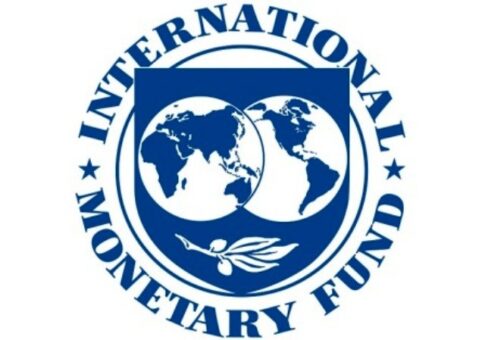Finance Minister Muhammad Aurangzeb expressed optimism on Sunday about Pakistan’s prospects of securing a new bailout from the International Monetary Fund (IMF). This comes after President Asif Ali Zardari approved a tax-intensive budget for the upcoming fiscal year starting July 1.
At a press conference in Islamabad, Aurangzeb stated, “The IMF programme is our assurance in terms of macro stability. We are taking it forward; it is inevitable. I’m very optimistic that we’ll be able to take it through the finish line for an Extended Fund Programme which is going to be larger and longer in nature.”
The financially struggling federal government has adopted an Rs18.9 trillion budget, heavily laden with tax-raising measures, to secure the IMF bailout and avoid a repeat of last year’s near-default. The new budget includes increased taxes on the already burdened salaried class, a move to bring exporters into the normal tax regime, a hike in the petroleum levy to Rs70, and new taxes on the real estate sector, among others, to boost tax collection.
Experts believe this financial plan will aid in unlocking the IMF deal but caution it could exacerbate inflation, leading to public discontent. Addressing these concerns, Aurangzeb remarked, “I completely understand the stress that people from different sectors feel about additional taxes; I completely empathise and sympathise, but we need to work for it.”
He assured that the government is committed to easing the burden on the common people and businesses by curbing financial leakages and improving management systems in the coming days.
One of the most controversial aspects of the budget is the increase in the petroleum development levy (PDL) by Rs10 per litre, raising it from Rs60 to Rs70. This has alarmed the public due to already high petrol prices. However, Aurangzeb clarified that the new levy would not be imposed immediately, stating, “There are talks about the PDL. I want to be very clear: the Rs70 limit that we’ve set, we’re not going to impose it [right now].”
He emphasized that the Rs70 limit is a ceiling and would be used as headroom, not an immediate increase. Similar levies have been approved for diesel, light diesel oil, kerosene oil, and high-octane, with the aim of generating additional revenue.
In a country with over 240 million people, where most jobs are in the informal sector, only 5.2 million filed income tax returns in 2022. To enhance tax collection, the government has taken drastic measures such as blocking mobile phone SIM cards and restricting non-filers from traveling abroad.
While the budget has faced criticism for not expanding the tax net to include new sectors, Aurangzeb defended the financial blueprint. He pointed out that new sectors would indeed be taxed, citing the example of retailers who have registered for taxation. “There should be no confusion that we aren’t roping in new sectors. The same goes for the real estate sector, previously, the demand side was taxed […] and now the supply side’s income will also be taxed,” he explained.
Aurangzeb also emphasized the importance of eliminating non-filers from the tax system. “In this particular budget, we have taken it to the punitive level so as to make the non-filers realise that they [have to file their taxes].”
As Pakistan navigates its economic challenges, the finance minister remains hopeful that the measures in the new budget will not only secure the necessary IMF support but also set the country on a path to greater financial stability.
